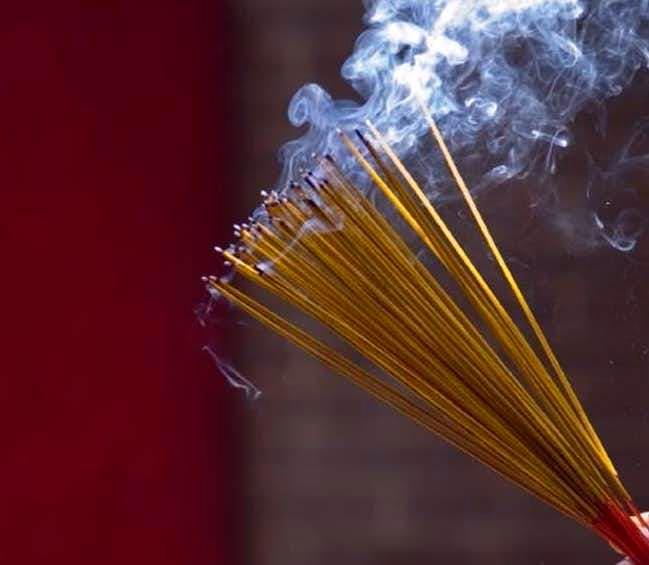In numerous places of worship, including Catholic churches and many Indian households, agarbattis (incense sticks) hold significant importance in prayers, where the absence of these sticks renders the puja (ritual) incomplete for Indians and the mass celebration incomplete for Catholics. Despite being valued for their aromatic scents, incense sticks offer no discernible health benefits. However, what often goes unnoticed is the potential harm they can inflict on health.
1. They contribute to body toxicity
Research indicates that burning incense sticks releases a toxic smoke containing elements such as lead, iron, and magnesium, thereby contributing to the body’s toxic burden. The inhalation of chemical gases and particulate matter from this smoke can strain the kidneys as they work to eliminate toxins, potentially leading to various kidney issues. Additionally, the smoke from incense sticks can elevate the concentration of impurities in the bloodstream.
2. They can cause respiratory infections
Recent studies have highlighted the health risks associated with burning agarbattis indoors. These studies have revealed that the smoke from incense sticks generates air pollutants, including carbon monoxide, which can contribute to indoor air pollution. Prolonged exposure to this polluted air may result in inflammation of lung cells, increasing the likelihood of respiratory complications. Individuals may experience symptoms such as coughing and sneezing due to hypersensitivity to excessive smoke inhalation, with rare instances of choking occurring in cases of significant smoke exposure.
3. They pose risks to cardiovascular health
Regular use of agarbattis can negatively impact heart health. Studies have indicated that prolonged exposure to incense stick smoke is associated with an increased risk of cardiovascular mortality and coronary heart disease. This risk elevation is attributed to the inhalation of volatile organic compounds and particulate matter present in agarbatti smoke, which can induce inflammation in blood vessels and disrupt blood flow, potentially leading to heart-related complications.

4. It elevates the likelihood of developing COPD and asthma
The emissions released during the combustion of incense sticks induce inflammation of the bronchial tubes responsible for delivering air to the lungs. These sticks contain sulfur dioxide, carbon monoxide, oxides of nitrogen, and formaldehyde in both particulate and gaseous forms, leading to inflammatory reactions such as COPD and asthma with regular exposure. The volume of smoke inhaled matches that of exposure to cigarette smoke.
5. It triggers neurological manifestations
Frequent exposure to incense stick smoke has been linked to various neurological symptoms, including increased headaches, difficulty concentrating, and forgetfulness. The burning of incense sticks contributes to indoor air pollution, which consequently raises the levels of carbon monoxide (CO) and nitrogen oxide (NOx) in the bloodstream. The heightened concentration of these gases induces neurological issues by affecting brain cells.
6. It induces skin allergies
Prolonged exposure to agarbatti smoke is known to cause eye irritation, particularly in children and older individuals. Additionally, individuals with sensitive skin may experience skin itching upon contact with pollutants and smoke on a daily basis. The particulate matter present in agarbatti smoke triggers skin irritation and allergies.
7. It heightens the risk of respiratory cancer
Have you considered the potential of burning incense sticks to increase the risk of respiratory tract cancer? A study published in the Journal of the American Cancer Society highlighted that long-term exposure to incense sticks (agarbattis) heightens the risk of upper respiratory tract cancer. The study further demonstrated that the use of incense raises the risk of upper respiratory tract squamous cell carcinoma more significantly in smokers than in non-smokers.
Bottom Line
Incense sticks, integral to prayer rituals in various places of worship and households, lack health benefits despite their aromatic allure. Their burning emits toxic elements, contributing to body toxicity, respiratory infections, and cardiovascular risks. Additionally, they exacerbate COPD and asthma, trigger neurological symptoms, induce skin allergies, and heighten the risk of respiratory cancer.
